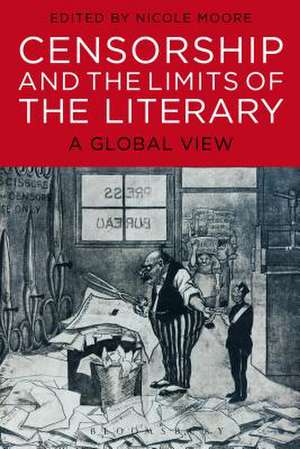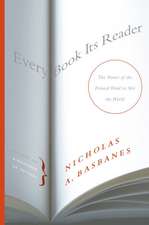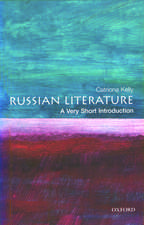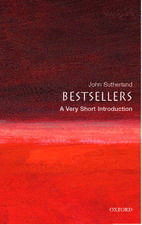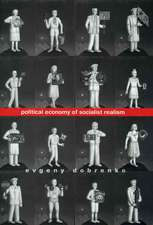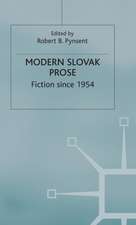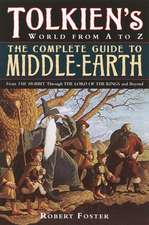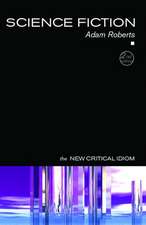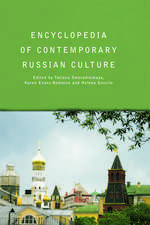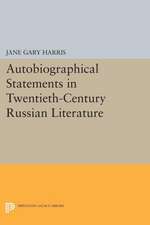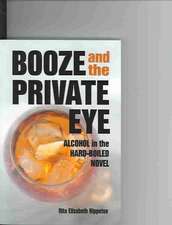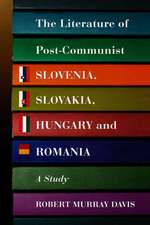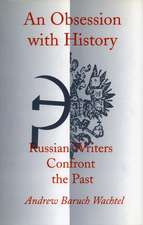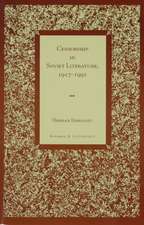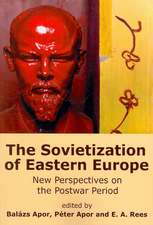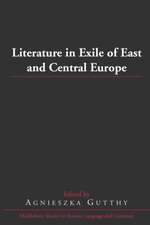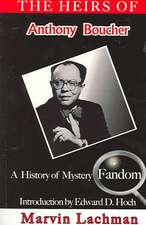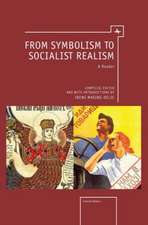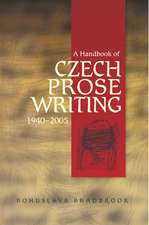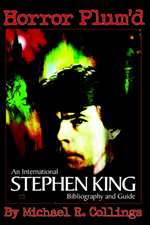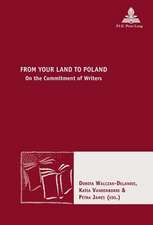Censorship and the Limits of the Literary: A Global View
Editat de Nicole Mooreen Limba Engleză Hardback – 26 aug 2015
| Toate formatele și edițiile | Preț | Express |
|---|---|---|
| Paperback (1) | 257.50 lei 6-8 săpt. | |
| Bloomsbury Publishing – 22 feb 2017 | 257.50 lei 6-8 săpt. | |
| Hardback (1) | 773.81 lei 6-8 săpt. | |
| Bloomsbury Publishing – 26 aug 2015 | 773.81 lei 6-8 săpt. |
Preț: 773.81 lei
Preț vechi: 990.48 lei
-22% Nou
Puncte Express: 1161
Preț estimativ în valută:
148.09€ • 160.80$ • 124.39£
148.09€ • 160.80$ • 124.39£
Carte tipărită la comandă
Livrare economică 23 aprilie-07 mai
Preluare comenzi: 021 569.72.76
Specificații
ISBN-13: 9781628920093
ISBN-10: 1628920092
Pagini: 272
Ilustrații: 11 b/w illustrations
Dimensiuni: 152 x 229 x 23 mm
Greutate: 0.52 kg
Editura: Bloomsbury Publishing
Colecția Bloomsbury Academic
Locul publicării:New York, United States
ISBN-10: 1628920092
Pagini: 272
Ilustrații: 11 b/w illustrations
Dimensiuni: 152 x 229 x 23 mm
Greutate: 0.52 kg
Editura: Bloomsbury Publishing
Colecția Bloomsbury Academic
Locul publicării:New York, United States
Caracteristici
Includes
material
from
the
origins
of
modern
censorship
to
contemporary
repression
across
the
globe
Notă biografică
Nicole
Mooreis
Associate
Professor
in
English
at
the
University
of
New
South
Wales,
Canberra,
Australia.
She
is
the
author
ofThe
Censor's
Library:
Uncovering
the
Lost
History
of
Australia's
Banned
Books,
which
was
shortlisted
for
the
Prime
Minister's
Australian
History
Prize
2013,
and
co-editor
ofThe
Literature
of
Australia(2009).
Cuprins
List
of
IllustrationsIntroductionI1.
French
Censorship
on
the
Eve
of
the
RevolutionSimon
Burrows,
University
of
Western
Sydney,
Australia2.
Not
Guilty:
Negative
Capability
and
the
Trials
of
William
HoneClara
Tuite,
University
of
Melbourne,
Australia3.
The
Gender
of
Censorship:
John
Wilson
Croker,
Mary
Hays
and
the
Aftermath
of
the
QueenCaroline
AffairMary
Spongberg,
University
of
Technology,
Sydney,
Australia4.
'The
Chastity
of
our
Records':
Reading
and
Judging
Obscenity
in
Nineteenth-Century
CourtsKaren
Crawley,
Griffith
University,
AustraliaII5.
Controlling
Ideas
and
Controlling
People:
Libel,
Surveillance,
Banishment
and
Indigenous
LiteraryExpression
in
the
Dutch
East
IndiesPaul
Tickell,
University
of
New
South
Wales,
Canberra,
Australia6.
Teaching
Librarians
to
be
Censors:
Library
Education
for
Francophones
in
Quebec,
1937-1961Geoffrey
Little,
Concordia
University,
Canada7.
Surrealism
to
Pulp:
The
Limits
of
the
Literary
and
Australian
CustomsNicole
Moore,
University
of
New
South
Wales,
Canberra,
Australia8.
'That
Monstrous
Thing':
The
Critic
as
Censor
in
Apartheid
South
AfricaPeter
D.
McDonald,
St
Hugh's
College,
University
of
Oxford,
UKIII9.
Diabolical
Evasion
of
the
Censor
in
Mikhail
Bulgakov'sThe
Master
and
MargaritaIlona
Urquhart,
Deakin
University,
Australia10.
Reading
the
Enemy:
East
German
Censorship
across
the
WallChristina
Spittel,
University
of
New
South
Wales,
Canberra,
Australia11.
Wild
Spiders
Crying
Together:
Confessional
Poetry,
Censorship
and
the
Cold
WarTyne
Daile
Sumner,
University
of
Melbourne,
Australia12.
Freedom
to
Read:
Barney
Rosset,
Henry
Miller,
and
the
End
of
ObscenityLoren
Glass,
University
of
Iowa,
USAIV13.
Out
of
the
Shadows:
The
Emergence
of
Overt
Gay
Narratives
in
AustraliaJeremy
Fisher,
University
of
New
England,
USA14.
Silenced
Lives:
Censorship
and
the
Rise
of
Diasporic
Iranian
Women's
Memoirs
in
EnglishSanaz
Fotouhi,
University
of
New
South
Wales,
Australia15.
Egypt's
Facebook
Revolution:
Arab
Diaspora
Literature
and
Censorship
in
the
HomelandJumana
Bayeh,
University
of
Edinburgh,
UK16.
China's
Elusive
Truths:
Censorship,
Value
and
Literature
in
the
Internet
ageLynda
Ng,
University
of
Oxford,
UKList
of
ContributorsIndex
Recenzii
[A]
remarkable
collection
...
The
strength
of
this
book
lies
in
its
range
of
research,
with
twelve
nation
states
across
four
centuries
being
explored
...
An
important
contribution
to
the
scholarship,
providing
a
wealth
of
original
and
engaging
research.
[An] ambitious project ... [The contributions] provide a unique and carefully-orchestrated insight into the critical directions they emulate.
Nicole Moore, an expert on censorship, has put together a remarkable collection of erudite and thoroughly researched case studies that bust open prevailing ideas about the history of censorship since the Enlightenment. Tracking the course of subversive writing-from pamphleteering to jumping the Great Firewall-these essays survey four centuries of state efforts to squelch literary expression in Europe, America, Asia and Australia. From theancien régimeto the Arab Spring, collectively the authors survey twelve national stages to argue that the dance of literature and censorship presents a complex performance that at once sequesters and encourages suspicious relations between the state and its discontents. Whether overt or "soft" and self-imposed, censorship imbricates the law and art, casting itself as crucial to the invention of literature as a concept. Censorship exceeds the usual suspects: prigs, prudes, priests, police. It's very elusiveness a sign of its debt to literary thinking.
This stimulating collection explores the ways literature and censorship can be mutually constitutive, rather than straightforwardly opposing forces. Contributors examine the dialectic of literature and censorship in contexts ranging from ancient regime France to apartheid South Africa, from the Dutch East Indies to East Germany, from Regency England to contemporary Egypt. Nicole Moore's excellent introduction synthesizes the insights of recent work in the field and marks out future possibilities.
[An] ambitious project ... [The contributions] provide a unique and carefully-orchestrated insight into the critical directions they emulate.
Nicole Moore, an expert on censorship, has put together a remarkable collection of erudite and thoroughly researched case studies that bust open prevailing ideas about the history of censorship since the Enlightenment. Tracking the course of subversive writing-from pamphleteering to jumping the Great Firewall-these essays survey four centuries of state efforts to squelch literary expression in Europe, America, Asia and Australia. From theancien régimeto the Arab Spring, collectively the authors survey twelve national stages to argue that the dance of literature and censorship presents a complex performance that at once sequesters and encourages suspicious relations between the state and its discontents. Whether overt or "soft" and self-imposed, censorship imbricates the law and art, casting itself as crucial to the invention of literature as a concept. Censorship exceeds the usual suspects: prigs, prudes, priests, police. It's very elusiveness a sign of its debt to literary thinking.
This stimulating collection explores the ways literature and censorship can be mutually constitutive, rather than straightforwardly opposing forces. Contributors examine the dialectic of literature and censorship in contexts ranging from ancient regime France to apartheid South Africa, from the Dutch East Indies to East Germany, from Regency England to contemporary Egypt. Nicole Moore's excellent introduction synthesizes the insights of recent work in the field and marks out future possibilities.
